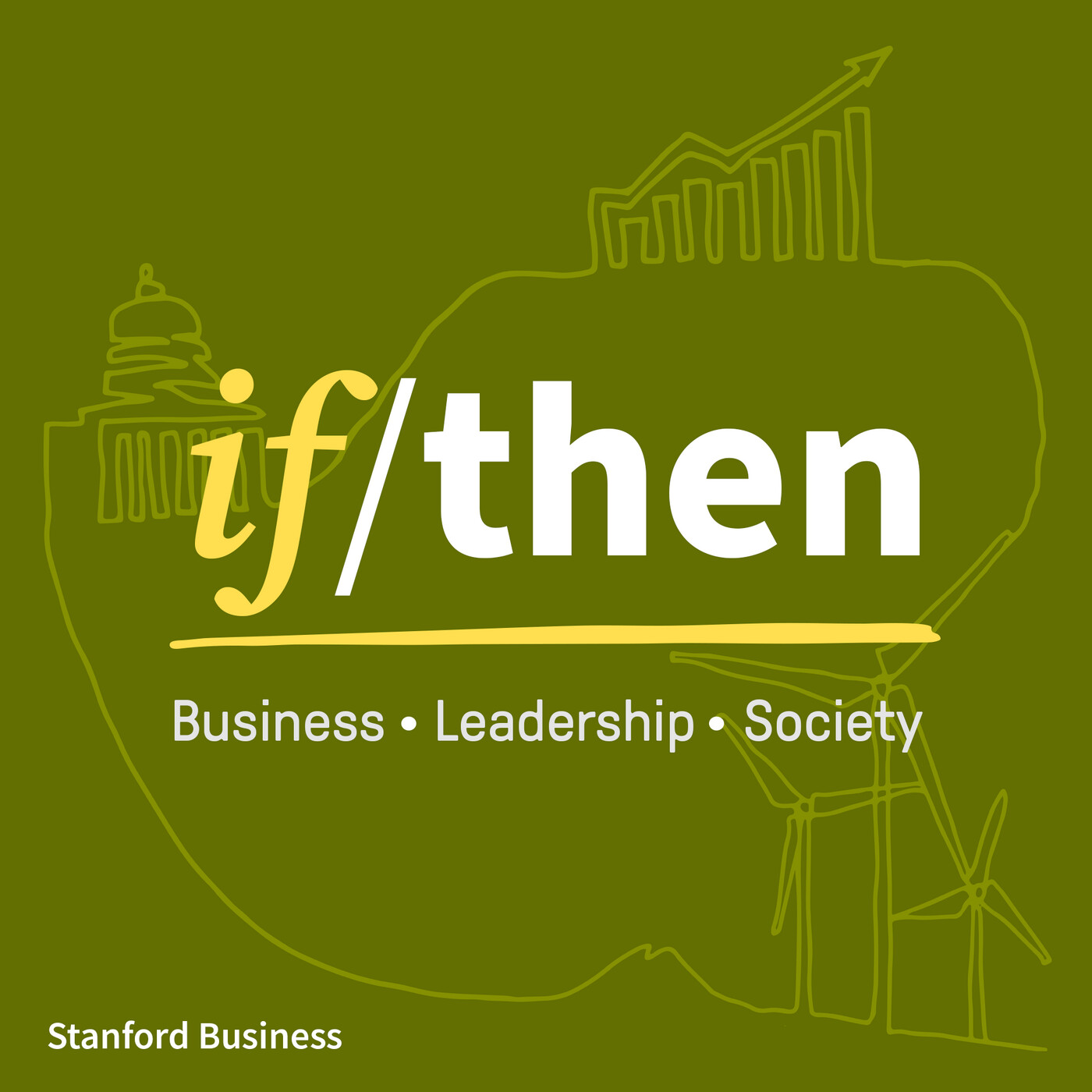So Crazy, It Might Just Work: How to Foster Innovation That Will Change an Organization, with Bill B...
21 Feb 2024
24 MINS
24:57
21 Feb 2024


…
…
How do we get people back to the office? How and when can AI be a powerful decision-making tool? How will digital currencies transform payment systems? On [If/Then] (https://www.gsb.stanford.edu/business-podcasts/if-then) experts from Stanford Graduate School of Business share their research findings on a range of topics that intersect with business, leadership, and society. We’ll tackle practical, cutting-edge insights that will help you manage better, lead more confidently, and understand pressing issues affecting our lives. Join GSB senior editor and host Kevin Cool as we hear about the latest research in technology, economics, marketing, politics, and several other areas.
How do we get people back to the office? How and when can AI be a powerful decision-making tool? How will digital currencies transform payment systems? On [If/Then] (https://www.gsb.stanford.edu/business-podcasts/if-then) experts from Stanford Graduate School of Business share their research findings on a range of topics that intersect with business, leadership, and society. We’ll tackle practical, cutting-edge insights that will help you manage better, lead more confidently, and understand pressing issues affecting our lives. Join GSB senior editor and host Kevin Cool as we hear about the latest research in technology, economics, marketing, politics, and several other areas.
Progress
Duration
Release Date
21 Feb 2024
24 MINS
24:57
21 Feb 2024
07 Feb 2024
23 MINS
23:44
07 Feb 2024
24 Jan 2024
32 MINS
32:40
24 Jan 2024
24 Jan 2024
27 MINS
27:00
24 Jan 2024
05 Jan 2024
01 MINS
01:41
05 Jan 2024